
Este jueves 13 de marzo, los congresistas Ros-Lehtinen, Connie Mack y otros 8, introdujeron en el Cámara de Representantes del congreso norteamericano la resolución H.R. 1049 donde le piden al gobierno norteamericano incluir a Venezuela en la lista de los países que apoyan el terrorismo.
Dicha resolución puede ser leída abajo (in inglés). Lista un número grande de razones, pero entre los más significativos están:
1.- Que existe evidencia de relaciones de alto nivel entre el gobierno venezolano y las FARC desde agosto de 1999.
2. Que en enero de 2008, el presidente Chávez llamó a las FARC "un ejército" y "una fuerza insurgente con un proyecto político", y le exigió a los gobiernos extranjeros que dejaran de llamar a las FARC terroristas;
3. Que en los documentos encontrados a Raúl Reyes se muestra que Venezuela habría pagado 300 millones de dólares a las FARC, además de mostrar contactos de alto nivel entre el gobierno venezolano y las FARC, además de los intentos de parte de las FARC para obtener 50 kilogramos de uranio
4. Que dichos documentos también indican que existe un acuerdo para liberar rehenes a cambio de promover a las FARC como una fuerza legitima e nsurgente, en lugar de una organización terrorista
5. Que se ha encontrado que grupos terroristas colombianos poseen armas venezolanas
6, Que el presidente Chávez tiene fuertes lazos con Iran, Cuba, Syria y Corea del Norte, todos estados que apoyan el terrorismo
7. Que Venezuela ha incrementado su cooperación con Iran y ha expresado su intereses en desarrollar energía nuclear
8. Que Venezuela ha firmado cerca de 200 acuerdos con iran
9. Que Venezuela tiene depósitos de uranio en Guayana
10. Que Iran puede usar su conexión con Venezuela para proveerle de dinero, drogas y armas a grupos terroristas
http://www.noticierodigital.com/forum/viewtopic.php?t=355787
Congresistas de Estados Unidos proponen incluir a Venezuela en lista terrorista
Los congresistas republicanos Ileana Ros-Lehtinen y Connie Mack presentaron este viernes una resolución en la Cámara de Representantes para instar al Gobierno norteamericano a incluir a Venezuela en su lista de países que apoyan el terrorismo.
"Durante más de 40 años, las FARC llevaron a cabo una brutal guerra de desestabilización contra los colombianos", recordó la cubanoestadounidense Ros-Lehtinen, al presentar la resolución junto a uno de los congresistas que más ha criticado al presidente Hugo Chávez en los últimos años.
"Las pruebas de que el Gobierno venezolano podría haberle dado ayuda y refugio a extremistas violentos es reprehensible y no debe ser ignorado", declaró la representante, que copreside la Comisión de Asuntos Exteriores de la Cámara de Representantes.
Los congresistas, ambos de Florida (sureste), basan su pedido en los documentos hallados en la computadora del fallecido número dos de las FARC, Raúl Reyes, que presuntamente vinculan a Chávez con las FARC.
El miércoles, el presidente George W. Bush alzó la voz contra Chávez por sus presuntas relaciones con la guerrilla colombiana: "El presidente de Venezuela elogió al dirigente terrorista por ser un 'buen revolucionario'", afirmó, en alusión a Reyes, muerto en una incursión colombiana en suelo ecuatoriano.
El mandatario estadounidense presentó las declaraciones de Chávez "como el último paso de una serie perturbadora de un comportamiento provocador del régimen de Caracas", utilizando el mismo léxico que cuando habla del "régimen" cubano.
Anexo la resolución H.R. 1049 (en inglés):
| Cita: |
| Calling for the Bolivarian Republic of Venezuela to be designated a state sponsor of terrorism. (Introduced in House) HRES 1049 IH 110th CONGRESS 2d Session H. RES. 1049 Calling for the Bolivarian Republic of Venezuela to be designated a state sponsor of terrorism. IN THE HOUSE OF REPRESENTATIVES March 13, 2008 Mr. MACK (for himself, Ms. ROS-LEHTINEN, Mr. PENCE, Mr. MARIO DIAZ-BALART of Florida, Mr. LAMBORN, Mr. MCHENRY, Mrs. BONO MACK, Mr. MCCAUL of Texas, Mr. WESTMORELAND, and Mr. LINCOLN DIAZ-BALART of Florida) submitted the following resolution; which was referred to the Committee on Foreign Affairs RESOLUTION Calling for the Bolivarian Republic of Venezuela to be designated a state sponsor of terrorism. Whereas United Nations Security Council Resolution 1566 defines `terrorism' as criminal acts committed with the intent to cause death or serious bodily injury, the taking of hostages with the purpose to provoke a state of terror in the general public or in a group of persons or particular persons, or to intimidate a population or compel a government or an international organization to do or to abstain from doing any act; Whereas United Nations Security Council Resolution 1566 calls upon all Member States, including the Bolivarian Republic of Venezuela, to prevent these terrorist acts and to punish appropriately those individuals or groups responsible for committing such acts; Whereas the Inter-American Convention Against Terrorism of the Organization of American States commits all State parties to establish domestic regulatory institutions that eradicate the financing of terrorist offenses, cooperate with fellow signatories to control borders, provide mutual legal assistance in counterterrorism efforts and prosecution of terrorist offenses, and conform to all other stipulations of the convention designed to prevent, punish, and eliminate terrorist offenses; Whereas Venezuela signed the Inter-American Convention Against Terrorism on June 3, 2002, and ratified the convention on October 22, 2003; Whereas, for more than 40 years, the Revolutionary Armed Forces of Colombia (FARC) has carried out bombings, mortar attacks, kidnappings, extortion, guerrilla warfare, and drug trafficking targeting Colombian and United States political, military, and economic interests as well as foreign citizens; Whereas sources indicate the FARC kidnapped a total of 6,877 Colombian and foreign citizens between 1996 and January 2008, including three United States defense contractors who are currently being held hostage, and killed a total of 3,240 people between 2003 and January 2008; Whereas the FARC has been listed as a Foreign Terrorist Organization by the United States since 2001; Whereas reports indicate that ties between high-level Venezuelan officials and the FARC date back to August 1999, when letters signed by high-level aides of Venezuelan President Hugo Chavez revealed that the Venezuelan Government had offered fuel, money, and other support to the FARC; Whereas, in January 2008, President Chavez praised the FARC as `a real army' and `an insurgent force with a political project', and called upon foreign governments to cease referring to the FARC as a terrorist organization; Whereas seized documents from a Colombia-led raid against the FARC on March 1, 2008, suggest evidence of $300,000,000 in payments to the FARC from the Venezuelan Government, high-level contacts by the FARC with officials from Ecuador and Venezuela, and efforts by the FARC to obtain 50 kilograms of uranium; Whereas these documents reportedly reveal agreements between the Venezuelan Government and the FARC to release hostages in exchange for the promotion of FARC by President Chavez as a legitimate army and insurgency, rather than as a terrorist organization; Whereas section 6(j) of the Export Administration Act of 1979, section 40 of the Arms Export Control Act, and section 640A of the Foreign Assistance Act of 1961 stipulate that a designated state sponsor of terrorism is one `that repeatedly provides support to acts of international terrorism'; Whereas, since 2001, in each Annual Country Report on Terrorism, the Department of State has cited the ability of the FARC and the Colombian National Liberation Army to use the Venezuelan border area for cross-border incursions and regard Venezuelan territory near the border as a safe haven; Whereas, on September 15, 2005, President George W. Bush decertified Venezuela regarding counter-narcotics cooperation because Venezuela had `failed demonstrably' to stem the flow of hundreds of tons of cocaine and other illegal narcotics; Whereas a 2007 Drug Enforcement Administration report linked nearly half of all designated Foreign Terrorist Organizations around the world, including the FARC, to narcotics trade; Whereas, in May 2006, the Department of State determined, pursuant to section 40A of the Arms Export Control Act, that Venezuela was not cooperating fully with United States antiterrorism efforts; Whereas terrorist groups in Colombia have been found to be in possession of weapons belonging to official Venezuelan stocks and facilities; Whereas President Chavez has established strong relationships with Iran, Cuba, Syria, and North Korea, all state sponsors of terrorism; Whereas according to the Annual Threat Assessment of the Director of National Intelligence, released on February 5, 2008, Venezuela has greatly increased its cooperation with Iran and expressed a willingness to cooperate with that country on nuclear energy; Whereas Venezuela has concluded nearly 200 bilateral agreements with Iran on military cooperation, the sharing of intelligence, establishing direct civilian airline flights between Caracas and Tehran, expanding financial cooperation, and initiating cultural exchanges, among others; Whereas, in February 2006, the chairman of the Iranian legislative body announced an offer to assist Venezuela with a nuclear program; Whereas, in March 2006, President Chavez defended Iran's development of a capacity to enrich uranium, which many observers believe is part of a nuclear weapons program, despite several United Nations Security Council resolutions requiring Iran to halt its enrichment program; Whereas Venezuela was one of only three members of the 35-country board of the International Atomic Energy Agency to vote against referring Iran to the United Nations Security Council for violations of its obligations under the Nuclear Non-Proliferation Treaty; Whereas Venezuela reportedly has large deposits of uranium ore in the Guiana Shield region; Whereas according to United States intelligence officials, Iran possesses the potential to use its close relationship with Venezuela to facilitate the smuggling of people, drugs, and weapons into the Western Hemisphere through terrorist proxy groups; Whereas section 40 of the Arms Export Control Act defines `international terrorist acts' as those that aid or abet the proliferation or acquiring of nuclear weapons or material or those that aid or abet the production, collection, or use of chemical, biological, or radiological weapons; Whereas United Nations Security Council Resolution 1540 commits all Member States, including Venezuela, to enforce effective measures to prevent the proliferation of nuclear, chemical, or biological weapons; and Whereas the activities of supporters and financiers of terrorist organizations in the Western Hemisphere constitute a severe threat to the United States and its allies and interests: Now, therefore, be it Resolved, That the United States House of Representatives-- (1) condemns the Government of the Bolivarian Republic of Venezuela for its state-sponsored support of international terrorist groups; (2) encourages the President to direct the United States Representative to the Organization of American States (OAS) to-- (A) urge OAS Member States to designate the Revolutionary Armed Forces of Colombia (FARC) a terrorist organization if such Member States have not already done so; (B) move for a declaration at the next meeting of OAS Member States that calls on countries to systematically deny use of their respective territories by a terrorist or terrorist organization; and (C) propose a convention to prevent the proliferation of nuclear, chemical, and biological weapons within the Western Hemisphere, using United Nations Security Council Resolution 1540 as a model, and urge all OAS Member States to sign and ratify such a convention; (3) directs the Secretary of State to work with the countries of the Western Hemisphere to ensure the effective implementation of-- (A) the Inter-American Convention Against Terrorism, to prevent the spread and financing of international terrorist acts within the Western Hemisphere and to counter any efforts of countries in the Western Hemisphere to provide support for terrorist acts; (B) the United Nations Security Council Resolution 1540, to prevent the proliferation of nuclear, chemical, and biological weapons; and (C) the United Nations Security Council Resolution 1566, to halt the spread of global terrorism and to promote greater cooperation among United Nations Member States to implement counterterrorism measures; (4) calls upon the Government of Venezuela to immediately renounce all support and ties to terrorist organizations, including the FARC and the Colombian National Liberation Army; and (5) urges the United States Government to designate Venezuela as a state sponsor of terrorist . EL NACIONAL http://www.el-nacional.com/www/site/detalle_noticia.php?q=nodo/20064 |
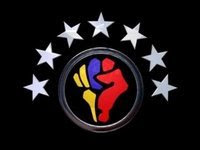



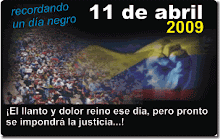



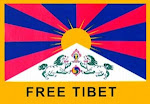
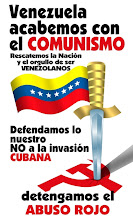






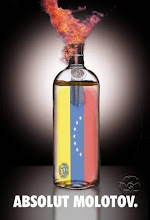
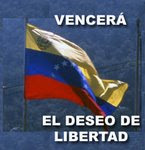
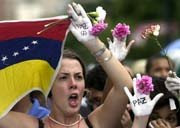
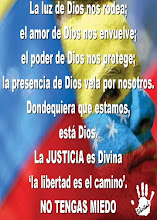
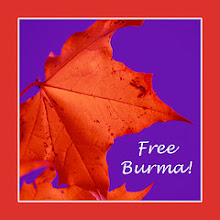

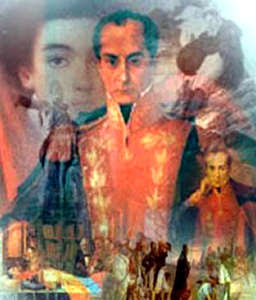
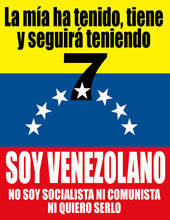
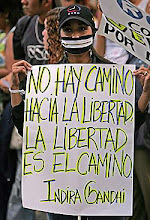




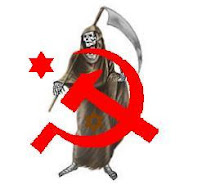
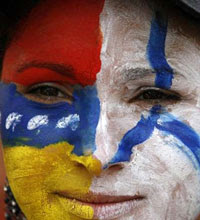
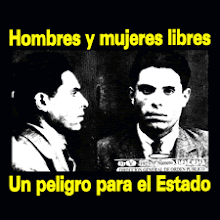
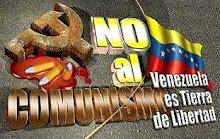
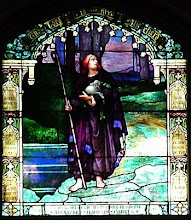
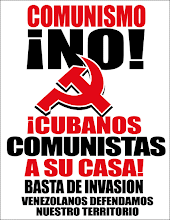


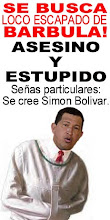
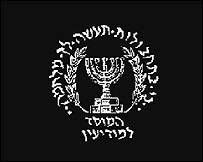
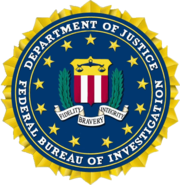
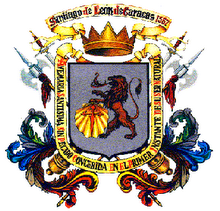


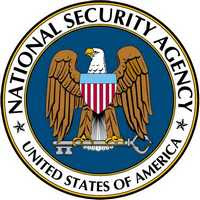


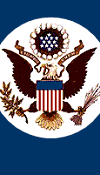
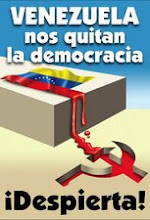





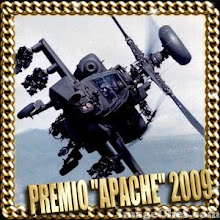
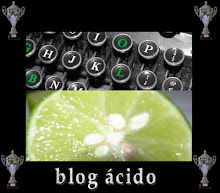
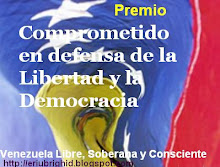
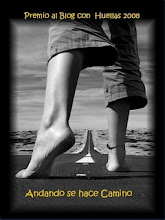
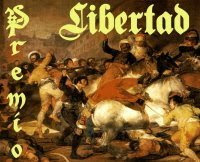



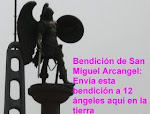















No hay comentarios:
Publicar un comentario